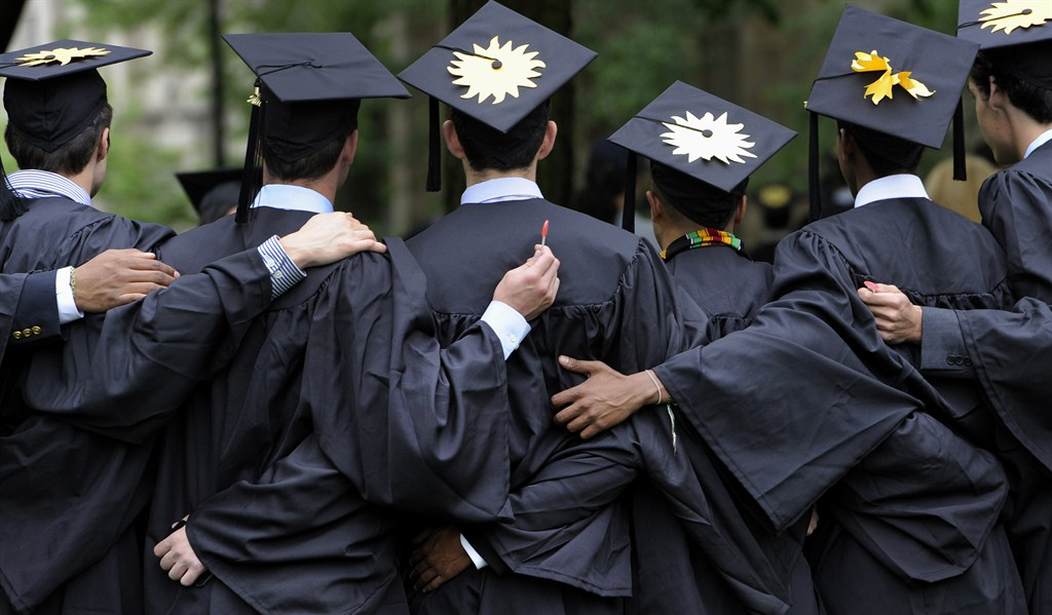Much noise has been made about the growing student loan bubble and what kind of impact it will have on the economy when it goes “boom.” It is a reasonable question, but if you are thinking this is just like the housing bubble, or the tech/Internet- stock market bubble, you are wrong. There is no doubt that the rapid spike in student loans over the past five-years has been alarming, especially since the funding and now the risk comes at the expense of taxpayers.
However, being accustomed to getting the short end of the stick when the world is turned upside down, taxpayers would loath having to pay for defaults on loans without their consent. There was a chain of events that brought the nation to this point.
Beginning with the 2008 semester loan limits that were placed on Stafford loans, putting a deep chill on private lending:
- 2007-2008 semester 2.8 million private sector loans averaged $7,041
- 2011-2012 semester 1.3 million private sector loans averaged $5,870
In the 2011-12 semesters, the federal government issued 93% of all college loans. The numbers are staggering and now it is a Main Street concern. According to a 2011 Pew research survey, one in five US households were holding student loans at an average balance of $23,300. The bottom line is that college is not cheap and the burden of student loan debt continues to impact Main Street and the economy.
|
Tuition 4-Year Colleges |
All |
Public |
Private |
|
1981-82 |
$9,554 |
6,942 |
15,306 |
|
2011-12 |
$23,066 |
16,789 |
33.716 |
Recommended
U.S. Department of Education, National Center for Education Statistics
The administration took control of student loans, along with other large foundations including medical and financial ones, when the rug was pulled from under private lenders in 2010. The result has seen student loan debt, largely sponsored by taxpayer funds, spiking more than 50% since 2009.

Despite the burden, those screaming that college isn’t worth it must look at current and future economic reality. It is not just that college grads have lower unemployment rates; these rates are lower on significantly higher participation rates.
|
Jobs Picture By Education |
Unemployment Rate |
Participation Rate |
|
|
June 2013 |
June 2014 |
||
|
Less than High School |
9.1 |
45.5 |
43.3 |
|
High School |
5.8 |
59.1 |
57.8 |
|
Some College |
5.0 |
67.4 |
67.6 |
|
College |
3.3 |
75.1 |
75.2 |
A study of minimum wage highlights the risk of starting college and not finishing.
|
Minimum Wage By Education |
% Working Minimum Wage |
Total Working Minimum Wage |
|
Less than High School |
9.8% |
927,000 |
|
High School |
3.7 |
980,000 |
|
Some College |
4.2 |
1,133,000 |
|
College |
1.8 |
260,000 |

However, there is a collection-risk concern and ultimately, something must be done to curb tuition cost. I think the key is the return of private lenders. They would certainly balk at overpaying for degrees with limited return on investment:
- Communications
- Psychology
- Nutrition
- Hospitality/tourism
- Religious studies
- Education
- Fine Arts
- Sociology
The good news is that private lenders are easing back into student loans (see WSJ graph).

Moreover, how close we are to the “bubble” popping remains to be seen. Obviously, a much more improved economy would mitigate the risk. Still, the conundrum is real. College grads are working, but newer grads are working in occupations in which they are over-qualified, and yet, we have a nation thirsting for the right kind of skills. For now, college is worth it, but I cannot say that's a given for much longer…

























Join the conversation as a VIP Member